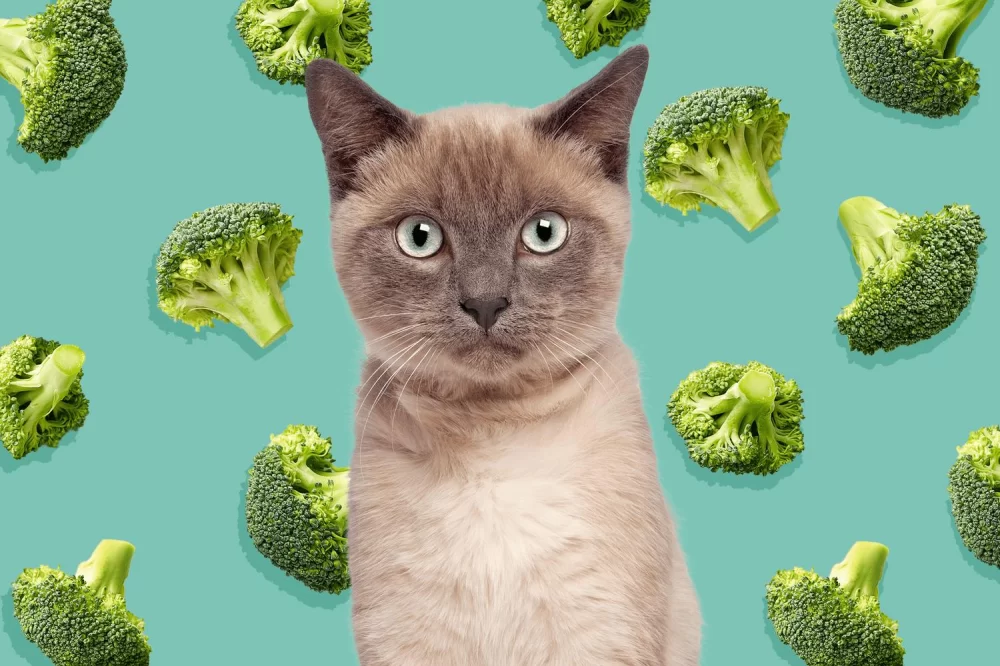- Is Broccoli Safe for Cats?
- Nutritional Benefits of Broccoli for Cats
- Potential Risks of Feeding Broccoli to Cats
- How to Safely Feed Broccoli to Cats
- Real-Life Examples of Cats Eating Broccoli
Is Broccoli Safe for Cats?
Broccoli is a popular vegetable among humans for its high nutritional value, but can cats eat broccoli without harm? The answer is yes—generally, broccoli is safe for cats in moderation. However, before offering it to your feline friend, it’s essential to understand its nutritional profile and potential risks. Cats are obligate carnivores, meaning their primary diet should consist of animal protein. While vegetables like broccoli can offer some benefits, they are not essential to a cat's diet. The key to safely feeding broccoli to your cat is moderation.
Nutritional Benefits of Broccoli for Cats
Broccoli is packed with vitamins and minerals that can be beneficial to your cat's overall health. Here are some key nutritional components found in broccoli that can positively affect cats:
- Vitamins: Broccoli is rich in vitamins A, C, and K, which are important for maintaining healthy skin, eyesight, and immune function.
- Fiber: A small amount of fiber in broccoli can aid digestion and help regulate bowel movements. However, too much fiber may lead to digestive upset in some cats.
- Antioxidants: These compounds help fight off free radicals in the body, supporting your cat's long-term health and potentially reducing the risk of chronic diseases.
While these nutrients are beneficial, they should not replace the primary animal-based diet cats need. If you're looking for additional nutrients for your cat, consider consulting with your veterinarian about safe supplements.
Potential Risks of Feeding Broccoli to Cats
Despite its many benefits, there are a few potential risks when feeding broccoli to your cat. Here are some things to keep in mind:
- Gas and Bloating: Broccoli contains certain compounds that, in some cats, can lead to gas and bloating. If you notice your cat experiencing discomfort after eating broccoli, it’s best to discontinue feeding it.
- Choking Hazard: Broccoli stems, in particular, can pose a choking risk. Always make sure the broccoli is cut into small, manageable pieces before offering it to your cat.
- Overfeeding: Feeding too much broccoli can lead to digestive upset or diarrhea in cats. It’s important to remember that vegetables should only be an occasional treat rather than a regular part of your cat’s diet.
How to Safely Feed Broccoli to Cats
If you decide to offer broccoli to your cat, it’s important to do so in a safe manner. Here are some tips on how to incorporate this vegetable into your cat’s diet:
- Cook the Broccoli: Raw broccoli can be difficult for some cats to digest and may contain pesticides. Cooking the broccoli (steaming or boiling) will make it easier for your cat to eat and reduce the risk of digestive issues.
- Remove the Stems: The stems of broccoli are tough and can pose a choking hazard, so it’s best to remove them before offering the florets to your cat.
- Serve in Moderation: Only offer small portions of broccoli as a treat. Keep it to less than 10% of your cat’s daily caloric intake to avoid digestive issues.
- Observe for Reactions: After introducing broccoli into your cat’s diet, monitor them for any signs of upset stomach, such as vomiting, diarrhea, or lethargy. If any of these occur, remove the broccoli from their diet.
Real-Life Examples of Cats Eating Broccoli
Many cat owners have shared their experiences with feeding broccoli to their cats, with mixed results. For example, one cat owner found that their cat loved broccoli and seemed to enjoy the occasional treat, while another cat owner discovered that their cat had an adverse reaction, including vomiting and diarrhea, after eating a small piece of broccoli.
In another case, a cat named Max developed gas and bloating after being given broccoli too frequently. His owner decided to limit broccoli to once a week and noticed a significant improvement in his digestion.
These stories highlight the importance of watching your cat closely after introducing any new food. What works for one cat may not be suitable for another, and moderation is always key.
For any concerns or further guidance on feeding your cat a balanced and healthy diet, don’t hesitate to consult a professional at Hidden Brook Veterinary, where you can find expert advice and products tailored to your cat's needs.












